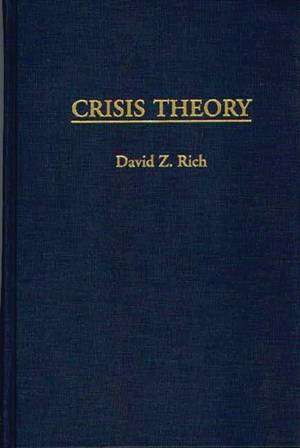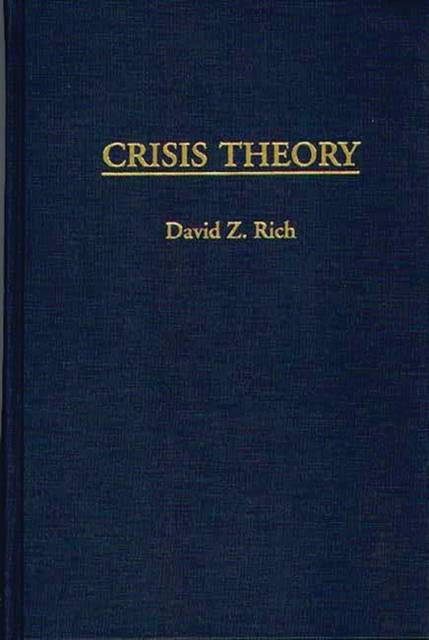
- Afhalen na 1 uur in een winkel met voorraad
- Gratis thuislevering in België vanaf € 30
- Ruim aanbod met 7 miljoen producten
- Afhalen na 1 uur in een winkel met voorraad
- Gratis thuislevering in België vanaf € 30
- Ruim aanbod met 7 miljoen producten
Omschrijving
Challenging chaos theory and catastrophe theory, the author contends that with the fragmented state of knowledge in contemporary times, these dynamic equilibrium-oriented theories are inadequate for generating new knowledge. Arguing that knowledge is dynamic and disequilibrium-oriented, Rich provides a new theoretical approach--crisis theory--and applies it to the problems of economics, politics, and the natural sciences. Crisis theory is constructed to deal with changes in problem areas, to allow for the development of new theories in both existing and emerging problem areas, and to allow for the exchange of information within opposing theories in economics and politics.
The book is composed of three parts. Part 1 discusses the role of knowledge and its anti-realism in our contemporary era and establishes the need for a new theory. Part 2 develops the schematic of crisis theory. In Part 3, the theory is applied to the problems of long-term business cycle theories, the nine implications of Mancur Olson's logic, the problems of the postindustrial future-oriented countries, and the paradox of industrialization.Specificaties
Betrokkenen
- Auteur(s):
- Uitgeverij:
Inhoud
- Aantal bladzijden:
- 248
- Taal:
- Engels
Eigenschappen
- Productcode (EAN):
- 9780275957223
- Verschijningsdatum:
- 28/10/1997
- Uitvoering:
- Hardcover
- Formaat:
- Genaaid
- Afmetingen:
- 156 mm x 234 mm
- Gewicht:
- 526 g

Alleen bij Standaard Boekhandel
Beoordelingen
We publiceren alleen reviews die voldoen aan de voorwaarden voor reviews. Bekijk onze voorwaarden voor reviews.











